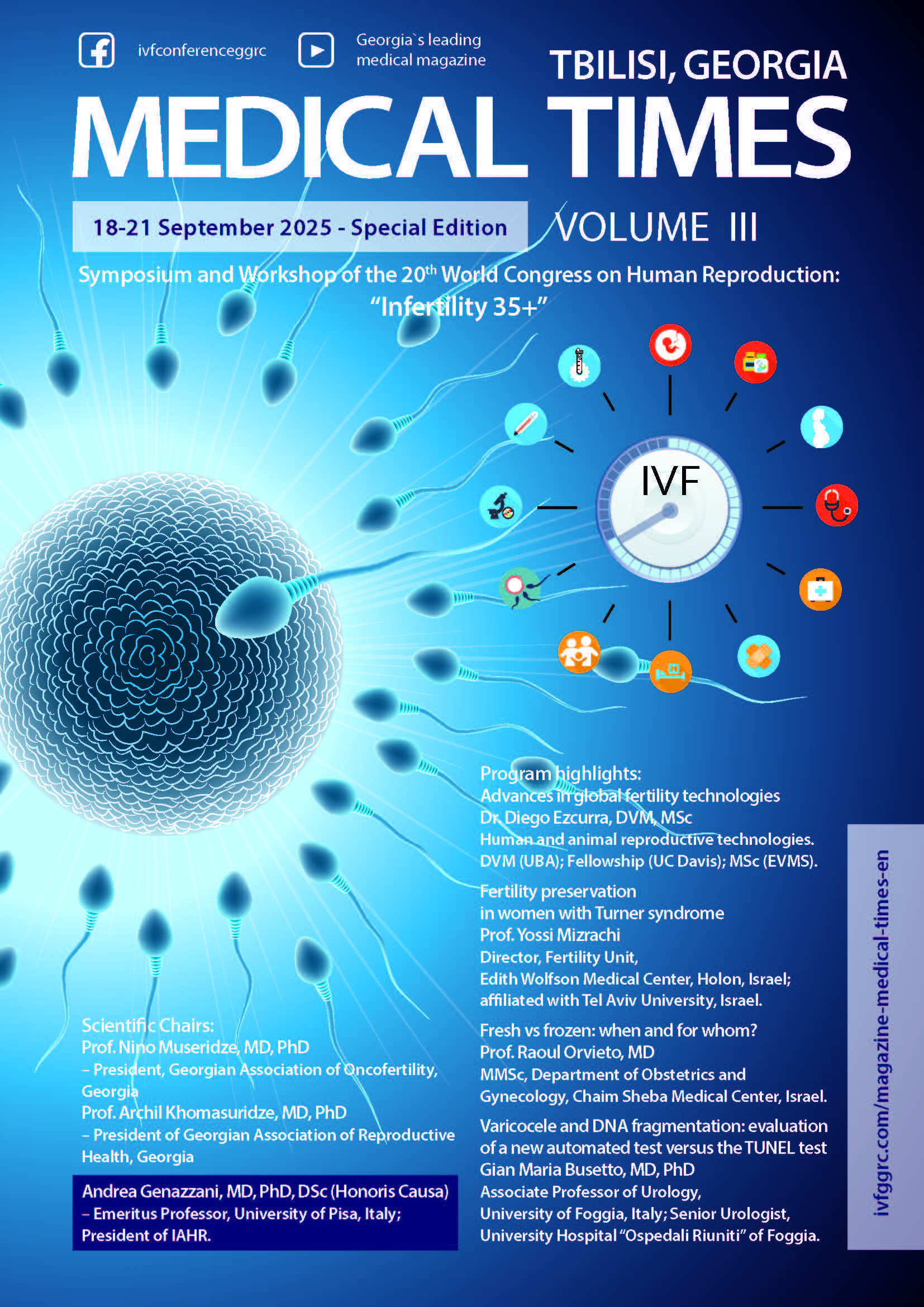Study of Rheological Properties in Physiological Pregnancy
DOI:
https://doi.org/10.71419/mtggrc.2024.12Keywords:
red blood cell, aggregation, deformation, plasma viscosity, rheology, I trimester, II trimesterAbstract
We studied pregnant women in the I and II trimesters and a control group of women in the 2nd phase of the menstrual cycle. All women measured the rheological properties of the blood, such as red blood cell aggregation, red blood cell deformation, blood plasma viscosity, and hematocrit. It turned out that rheological changes (deterioration) advancing in the first trimester tend to stabilize in the second trimester. This says, from our point of view, about the participation of a rheological system in the adaptation mechanism.
Downloads
Published
Issue
Section
License
Copyright (c) 2024 Maka Mantskava, Nana Momtselidze, Giorgi Kuchava (Author)

This work is licensed under a Creative Commons Attribution 4.0 International License.
In case an article is accepted for publication it is allowed to combine the article with other research, to conduct new research on the article, or to make different arrangements on condition that the same license is used including commercial purposes.
As an author of an article published in the Medical Times, you retain the copyright of your article and you are free to reproduce and disseminate your work.














